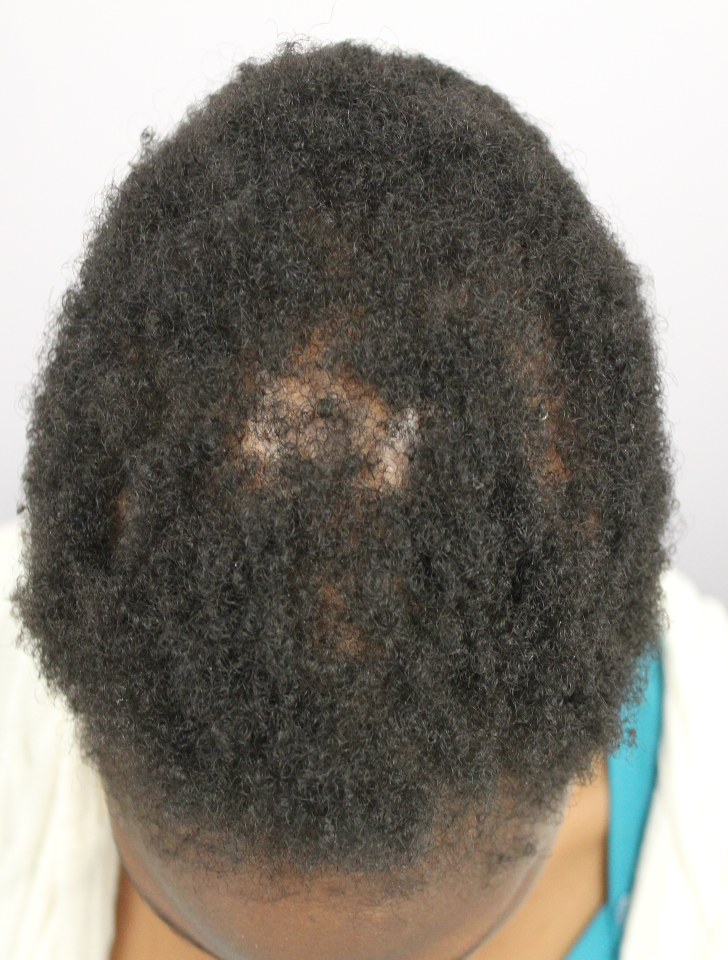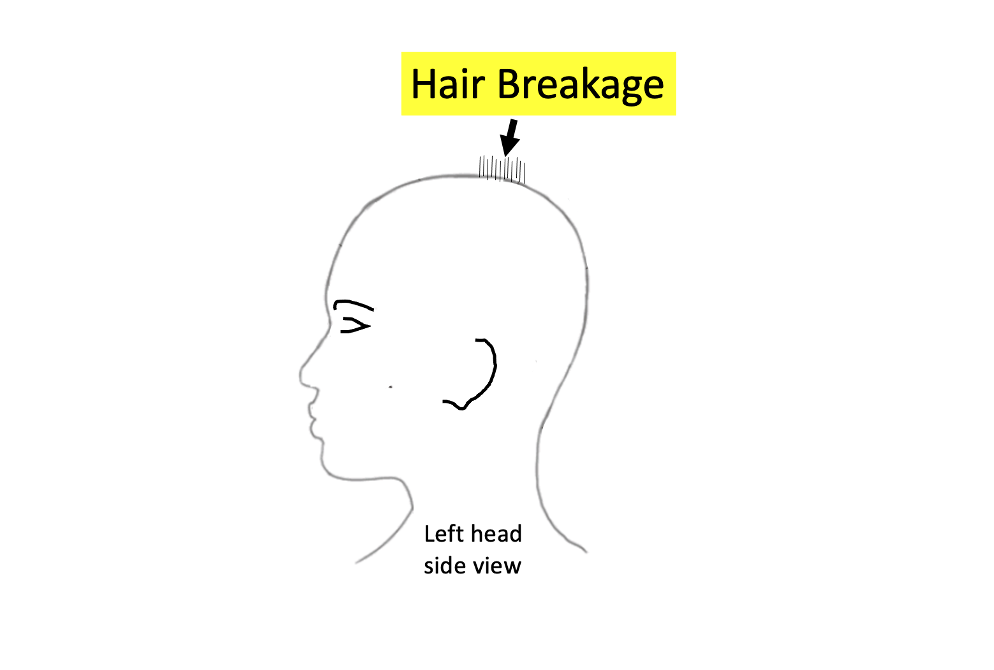Hair Breakage in Black Women: Not to be overlooked!
Hair Breakage Can be the Very First Sign of CCCA
Hair breakage is a common concern among women. For many black women, hair breakage is frequently attributed to a certain hair styling practice, or use of certain chemicals or to the use of heat. In some cases, the breakage is attribute to an inflammatory scalp condition like eczema or seborrheic dermatitis.
While all this can of course be true, it is often completely unrecognized that hair breakage can be a very sign of a scarring alopecia known as central centrifugal cicatricial alopecia or “CCCA.”
The Calender and Sperling Study of 2012
An extremely important study for physicians treating hair loss to know about is a US study from 2012 by Dr. Valerie Callender and her colleagues including Dr. Leonard Sperling, a top US dermatopatologist.
The researchers fully examined scalp biopsies from a total of 8 patients who presented to clinic with concerns about “hair breakage”. 5 of the 8 patients had biopsy findings that were compatible with typical CCCA, and 2 patients had biopsy findings that were suggestive of early CCCA. Only 1 of the 8 patients with complete biopsies had a normal biopsy. Interestingly, nearly all but one patient had scalp symptoms including scalp itching, burning and tenderness.
The areas of hair breakage were generally confined to small areas on the crown area - typically about the size of a tennis ball.
Early staged CCCA. The central scalp is typically affected. Hair breakage together with mild itching and tenderness was reported by the patient.
Summary: Why is hair breakage so important to recognize?
This study I mentioned above is a really important study because if reminds us that hair breakage is a concern that needs to be investigated. We need to pay attention to any patient who reports hair breakage but this is especially true for black women.
Hair breakage is therefore a possible clue to the diagnosis of the early stages of CCCA. Not every black woman with concerns about hair breakage is going to end up having CCCA as a final diagnosis. However, many, many will - especially if they are in the age range 33-50. I encourage every doctor I train to consider performing a scalp biopsy in women with concerns about hair breakage.
if one can identify CCCA in the early stages and treat it, I have no doubt that progression of CCCA will be stopped in many patients.
If a physician is going to resist biopsying every patient who presents to clinic with concern about hair breakage, I won’t argue with that particular physican’s professional judgement. Clearly not everyone with breakage is going to end up having CCCA. However, I biopsy a great proportion of patients with hair breakage and I pick up CCCA at very high rates in these situations. The physician who is reluctant to biopsy patients with hair breakage is going to miss diagnosing a lot of patients early staged CCCA that I can assure you.
I would encourage any physician who has a patient with hair breakage that is confirmed to small areas (like the size of a tennis ball or golf ball) in the crown or whose hair breakage is accompanied by symptoms of itching burning or tenderness to strongly consider a biopsy! This is especially true if the patient is 33-50 years of age.
Identifying CCCA in the Early Stages
It’s really important to identify CCCA in the early stages. If we can identify it early and get the patient on treatment, we can prevent (or at least slow) the rate of hair loss in many patients.
It’s actually quite easy to identify CCCA in the early stages. How you might say? Well, it comes from being willing to ask oneself with every black woman age 30-50 who comes into clinic with concerns about her hair…. Could this be CCCA?
If one is simply willing to ask that question, one will probably be willing to perform a biopsy and one will probably be willing to accept the results.
Early CCCA is not associated with hair loss and bald patches and images of the scalp that look like the textbook photos of CCCA (or like the one’s shown above). Not at all. Many patients with early CCCA have full looking hair but come into the clinic appointment with worries about hair breakage or worries about symptoms like itching burning or tenderness. These patients often benefit from a biopsy.
REFERENCE
Callender et al. Hair breakage as a presenting sign of early or occult central centrifugal cicatricial alopecia: clinicopathologic findings in 9 patients. Arch Dermatol. 2012 Sep;148(9):1047-52.
This article was written by Dr. Jeff Donovan, a Canadian and US board certified dermatologist specializing exclusively in hair loss.



